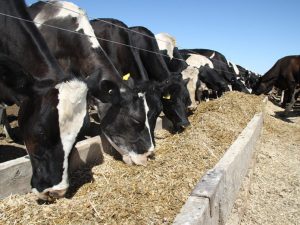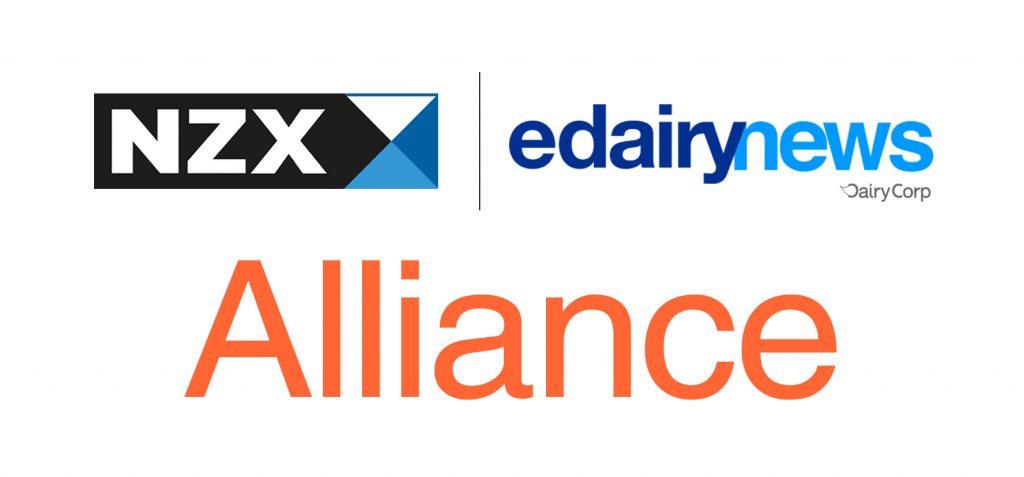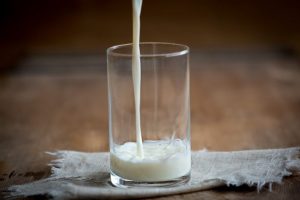Key points:
- One of only two dairies based in Eungella, which supplies milk locally to the Mackay region, is at risk of closure
- The community has rallied to save the farm by launching a fundraiser
- A dairy industry analyst says rising input costs and the nature of dairy farming make it a tough industry to be in
Shrouded in tropical rainforests and known for its picturesque views of the Pioneer Valley, Eungella used to be home to more than 50 dairies.
But these days only two remain and the impact of recent wild weather has left one of them with an uncertain future.
Dale Fortescue owns Eungelladale dairy with his wife, Paula, and says a series of hardships has left them with mounting bills and limited income.
“The bank balance doesn’t look too good, that’s for sure,” Mr Fortescue said.
“We’re at the end of our road if we can’t get some help.”
After January storms and a series of landslips blocked access roads, the community became isolated and some residents were unable to leave.
The Fortescue family was among them.
While the wet weather caused a major drop in milk production, the milk that could be produced was discarded as there was no way to have it transported for processing.
“[It was] nearly the last nail in the coffin for us,” Mr Fortescue said.
“When the rain came, it really knocked our milk production by two-thirds.”
The loss of production was further exacerbated by a shortage of grain supply.
“Normally we’ve got a bit of feed behind us, but we haven’t been able to do that this year,” Mr Fortescue said.
“I’ve got plenty of grass, enough to keep them going, but we need a bit more [grain] for milk production.
“If we can get a load of grain, milk production will come up … but you’re talking about $10,000 for a load that only lasts us eight weeks.”
Community rallies to help out
In a show of support for the region’s dwindling dairy industry, Eungella resident Cheryl Bousfield launched a fundraiser to support the business.
“I heard through a friend of mine who’s good friends with Dale and Paula how tough things were,” Ms Bousfield said.
“They’re having trouble [because they] just had one disaster after the other.
“So this would just be to get them back on their feet.”
Mr Fortescue said he was surprised to learn about the fundraiser but was deeply appreciative.
“We’re really grateful that someone’s taken the opportunity to do this,” he said.
“I don’t like being a charity case, but I am really pleased because we are sort of at the end of our tether.”
Tough time for dairy industry
Dairy Australia’s Industry insights and analysis manager John Droppert said times were tough for dairy farmers across the board with high input costs, such as grain and fertiliser, a key challenge.
“The basket of inputs that farmers purchase, those things are up around 60 per cent on average,” Mr Droppert said.
He said the price of milk did not rise as costs go up.
“You’ve got this huge volatility in your cost base and often that’s going up at times like these, whereas the price [of milk] doesn’t change as quickly,” he said.
“Dairy farming is a biological system, it’s very hard to turn cows on and off.”
Strong support for local businesses
Mr Droppert said there was a silver lining to the current market.
“The price of dairy products on the shelf is increasing,” he said.
“And the other thing coming out of COVID was people’s realisation of the value of food being produced more locally.
“So there are certainly opportunities there for more local operators to meet that market.”
Ms Bousfield said she was passionate about supporting local farmers.
“If we don’t support [them] then it becomes all big business and big multinational companies and we don’t have choices,” she said.
“To me, it’s hugely important supporting small farmers trying to have a go.
“On a day-to-day basis, they’re just trying to survive.”
















